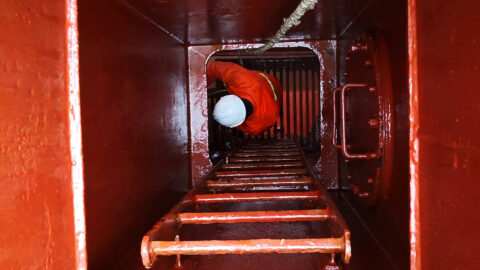The European Commission has yet to reach to a decision on the validity of Filipino seafarer certification and an announcement is not expected until the early part of 2012, a spokesman for transport commissioner Siim Kallas has confirmed.
The outcome will have huge implications for the labour supply on European Union-flagged vessels. Sources aware of the situation claim member states are divided between those that want steps taken to force the Philippines to raise its game and those more concerned by the severe disruption sanctions would cause.
The Lisbon-based European Maritime Safety Agency is known to have conducted a second assessment of maritime training in the Philippines in 2010 — the first one was in 2006 — which was sent to the commission for assessment.
At that time the expectation was for a ruling by the end of this summer, but no word has since been forthcoming from Brussels.
The risk is that the world’s number one seafarer supply nation will find itself in the same boat as Georgia, which last year suffered withdrawal of the recognition accorded to its Standards of Training, Certification and Watchkeeping certificates.
Such a development would be a huge headache for the European shipping industry, with thousands of freshly-minted Filipino officers and ratings prevented from taking jobs on EU vessels at a time when skill shortages are already apparent in some sectors. But any ruling will not be retrospective, allowing continued use of existing seastaff.
If recognition were withdrawn, EU maritime administrations would not in future be able to issue endorsements of recognition to certificates of competency held by Filipino officers.
The problem is that no mechanism exists to single out individual training institutions, leaving decision makers with only the nuclear option of debarring all newly graduated Filipino seafarers.
“There is quite an amount of disagreement between various EU members about what should happen and there is no consensus,” claimed the boss of one European manning agency involved in the supply of Filipino officers and cadets.
“Behind the scenes, they are trying to come up with some sort of action they can recommend. They are also visiting the Philippines, and may be there as we speak.”
The Brussels officials may be seeking a way of excluding some training establishments, he added. But that would leave open the issue of whether certificates from excluded establishments should be recognised when the time comes for revalidation. One possibility is to demand that refresher courses be undertaken.
“It was always a firing-from-the-hip situation. It was never going to stick — it is completely impractical and wasn’t thought through properly.”
Finally, the manning agency chief raised the point that the Philippines was on the STCW whitelist. If the commission concedes that some Filipino seafarers are not up to scratch, the standing of the whitelist will inevitably be devalued.
A spokesman for Mr Kallas said the commission had requested information from the government of the Philippines on the issues involved.
“The deadline that people were talking about was the end of August for the Philippines to give us additional information, and this it did on August 26,” he said.
“Now, the commission is taking all of these submissions from the government of the Philippines and we have to examine them. They come to several thousand pages and this will take some time, probably a couple of months rather than a couple of weeks.”
The commission is undertaking the task and a decision on recognition of certification will probably be taken by the beginning of 2012.
The spokesman said he was not aware of the discussions among member states, and accordingly he did not know if differences of emphasis had emerged.
International Maritime Employers’ Committee secretary general Giles Heimann said: “It makes sense that specific schools that are underperfoming are targeted by the commission or the Philippines government, because those are the let-downs. There are some very good schools that provide good-quality training and good-quality seafarers.

